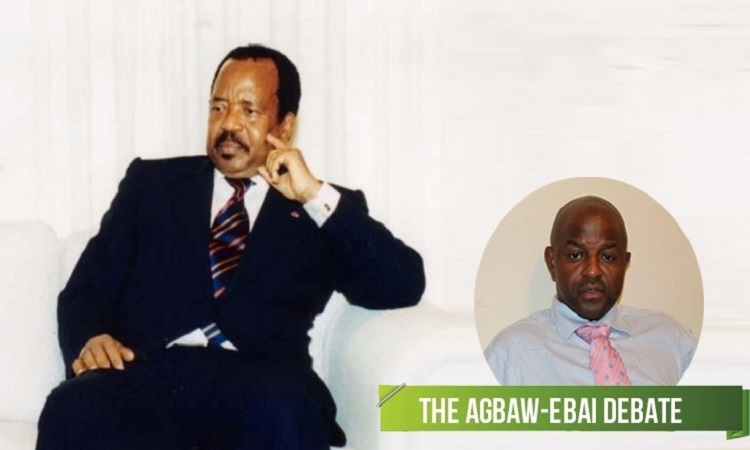Mali: Can Cameroon be the next?
The Malian coup d’état of August 18, 2020, that flushed out the country’s former president, Ibrahim Boubacar Keita, has sent shock waves across the African continent, especially in Cameroon where the country’s authorities are also being accused of the same crimes and sins that brought about the humiliation of the Malian president.
Over the last five years, former president Keita and his collaborators had been accused of corruption, mismanagement and incompetence which had brought untold hardship to the hard working people of Mali, causing the military to intervene in order to clean up the mess.
But compared to the situation playing out in Cameroon, former president Ibrahim Boubacar Keita and his collaborators will surely be seen as saints. Their crimes pale in comparison to those committed by the Biya regime.
In Cameroon, corruption, mismanagement and dictatorship have become the country’s hallmarks, with the country’s ruling party considering itself as the government.
Mali has been dealing with Islamic terrorists for years and president Keita’s incompetence and inability to roll back the terrorists caused the population to see him as a square peg in a round hole.
In Cameroon, the country’s president, Paul Biya, is not only a square peg in a round hole, he is a dead square peg in a huge round hole that has been swallowing up the country’s limited financial resources.
Cameroon too has been dealing with a challenging insurgency in the country’s two English-speaking regions of the country for four years and this conflict is costing the country a pretty penny.
For close to four years, the country’s English-speaking minority has taken on the government, accusing it of marginalization and discrimination.
The conflict has hurt the country’s economy with many state-owned corporations located in the two English-speaking regions of the country winding up due to constant attacks of their facilities by restoration forces.
Rather than seek to address the issues that triggered the fighting, the country’s authorities have instead opted to play the ostrich, hoping that time would help them address the issues.
Over the last four years, the country’s military which is supposed to protect the country’s population has been killing civilians and burning homes in the two English-speaking regions of the country.
Thousands of Southern Cameroonians have been killed by the military, and thousands now live in the jungle out of fear for a military that is very pro-government.
The government’s heavy-handed approach has also caused restoration forces to adopt violence as a key weapon that will enable their message to get across.
Where the government’s military violence cannot deliver the goods, it uses young girls as spies and they have succeeded on several occasions to infiltrate the ranks of the restoration forces. An approach that has led to the death of many restoration forces!
Restoration forces, for their part, have been sending a clear message to those who betray the revolution. Last week, a young lady was hacked to death in Muyuka, a town in the country’s southwest region where the insurgency has taken root. She had been accused of flirting with and spying for the military, an allegation that has been confirmed by the Cameroon Concord News Group correspondent in Muyuka.
The said lady had been working with three other girls and a young man who had earlier been kidnapped. He was questioned and later killed by restoration forces. He was the one who betrayed the young lady and restoration forces felt she must be taught a lesson. Her three friends who have been sleeping with soldiers and betraying the people’s cause have all fled the region and are now hiding in Yaounde where they are protected by the corrupt and incompetent Biya regime.
But it is not only in the country’s two English-speaking regions that there is a problem. The country’s northern region has been facing threats from Boko Haram and this has left the government with a sticky situation.
The situation in the north is getting worse by the day, with northerners holding that they have been left out of the current political dispensation ever since the country’s first president, Amadou Ahidjo, left power in 1982.
Ahidjo who died more than a decade ago, was buried in Dakar, Senegal, and Mr. Biya and his collaborators have refused to let Ahidjo remains to return to the country of his birth.
This has irked northerners, with many of them holding that there must be revenge. In the 80s, the Biya regime engineered many fake coups with the intention of eliminating many Ahidjo supporters. Thousands of northerners were killed and several thousand also fled the country. Today, northerners are mobilizing to challenge the regime and if their plan materializes, the Yaounde regime will be left in a pretty mess.
With such a long catalog of issues, crimes and sins, the country’s government is losing sleep, fearing that the military might intervene to rid the people of Cameroon of an incompetent dictator who has nothing to show for his 38 years in power.
Though the country’s president has, over the last 20 years, reduced the country’s military into a violent tribal militia, it is still concerned that things could spiral out of control, prompting the military to take over power.
Tuesday’s coup d’état in Mali has left many francophone African leaders wondering, but it is the Yaounde regime that is very likely to lose sleep because of the huge skeletons in its small cupboard.
But can the Cameroon military ever act like the Malian military? Will the Cameroon military ever think that its loyalty is with the people and not with a bunch of incompetent kleptocrats who have worked very hard to ruin the country?
By Soter Tarh Agbaw-Ebai
Group Chairman/Editor-In-Chief





